A Moroccan filmmaker and activist documents an Amazigh community’s years-long resistance against Africa’s largest silver mine.
The southern Amazigh commune of Imider in Morocco is home to Africa’s largest silver mine—and its oldest sit-in protest. In operation since 1969, the mine is run by Societe Metallurgique d’Imider, a private company in which King Mohammed VI owns a majority share.
Although the mining company promised economic growth, employment, and infrastructure development, Imider remains one of the poorest regions in Morocco. Protests erupted for the first time in 1996 after the mine began taking the water the villagers used for growing crops and raising livestock. Villagers conducted a 45-day sit-in on a road through the commune but were eventually arrested, imprisoned, or dispersed.
In 2011, in response to the intensifying depletion of groundwater and soil contamination by the mine, villagers climbed to the top of Mount Alebban and closed a valve for a major waterway to the mine. Since then, villagers have continually occupied what has become a semi-permanent encampment by the valve. As a result, the mine’s productivity dropped by 40 percent, but the water returned to the villagers’ wells, enabling them to farm again. However, the villagers have remained under intense state scrutiny, and 33 have been imprisoned since the valve was closed.
Moroccan filmmaker and activist Nadir Bouhmouch collaborated with the community of Imider to film Amussu, a feature-length documentary about their ongoing protest and sit-in movement. Bouhmouch has been a political activist and documentary filmmaker since 2012, when he made My Makhzen and Me, a film about the 20 February Movement in Morocco.
Roads & Kingdoms’ Irene Jiang spoke to Bouhmouch on the phone about land rights, participatory filmmaking, and dodging the police.
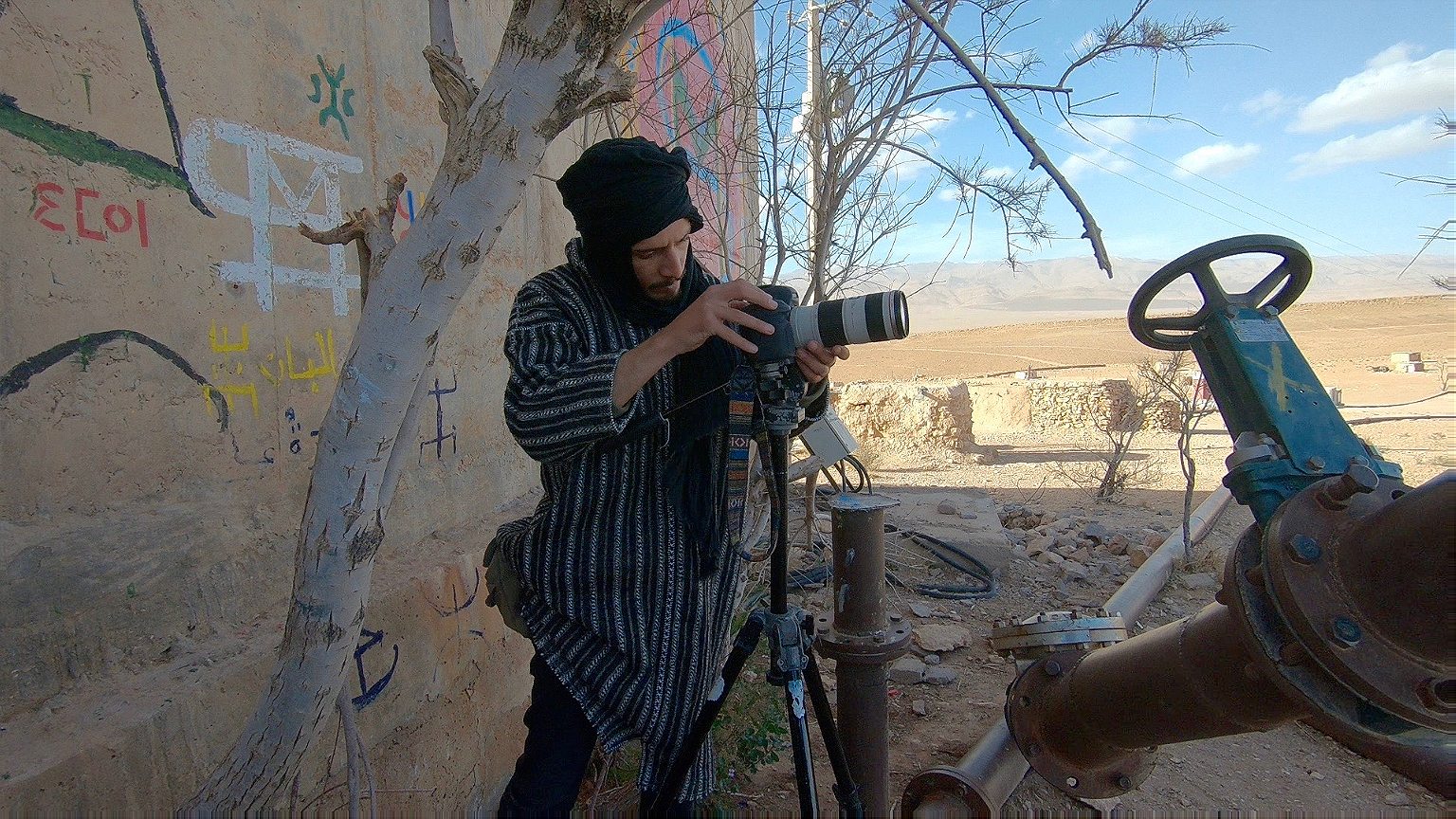
Jiang: Tell me about “Amussu.”
Bouhmouch: Amussu is the story of villagers in the southeast of Morocco who revolted against the biggest silver mine in Africa after it had been taking their water and polluting their lands for decades. In 2011, they decided to shut down a water pipeline to the mine. And the pipeline has been shut ever since. Eight years after, people are literally harvesting the fruits of their resistance. The film is told largely through izlan poetry, which is a form of poetry that’s indigenous to North Africa. It also looks at the relationship between the community and their land. So we see them harvesting, we see them living their daily lives, and see them feeding their livestock, etc.
Jiang: Why did you decide to make this documentary?
Bouhmouch: I’m from a relatively wealthy family in Morocco, which means that I haven’t personally experienced what working-class Moroccans go through. I can’t jump into fiction and try to portray a working-class character without having spent a long time talking to people and understanding my society. And I think that documentary is a good way to do that. I often have a problem with certain Moroccan fiction films that depict marginalized characters, precisely because they’re quite far from the reality that people live. They just recycle the same clichés, sometimes even colonial clichés.
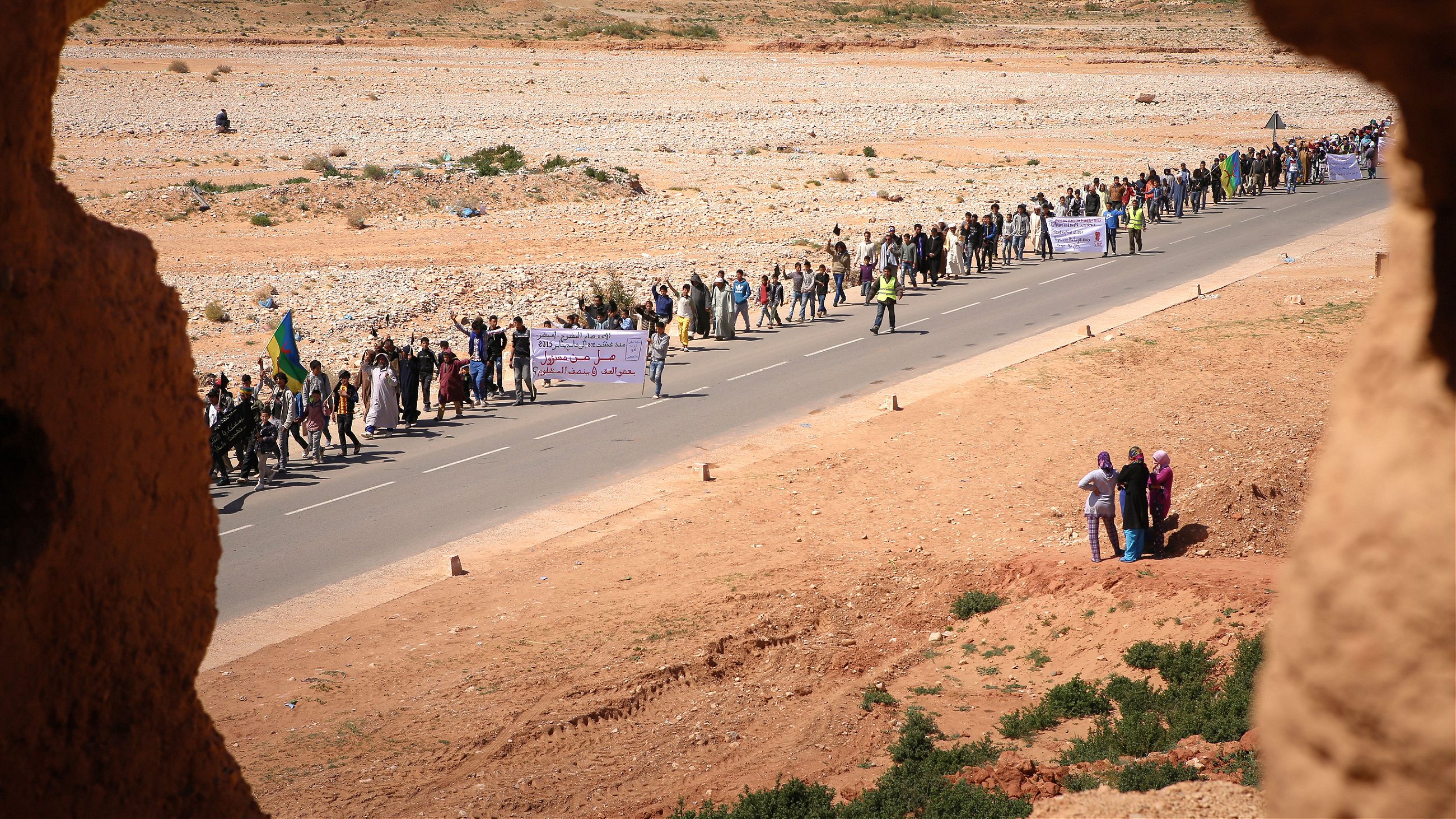
Jiang: How did you start working with the community to make the film?
Bouhmouch: I’ve been familiar with the revolts that pop up here and there throughout Morocco over the last few years, and this one, in particular, attracted me because of the way that it was organized and where it was taking place. It wasn’t an urban revolt, it was a rural revolt. And in terms of organization, it was rooted in indigenous democracy or what we call “agraw,” the general assembly of the tribe.
We often get this discourse that it’s the West that brought democracy to our countries, but actually, we’ve had non-hierarchical forms of governance in our society for a very long time. There was this active process of [the government] erasing precisely these democratic elements in our culture. And I found that in Imider they were being revived amidst a resistance movement.
So, instead of focusing on people as victims, as enduring oppression, I found a place where a film could more easily show active participation by every person in that community, where they were empowering themselves without any external empowerment program or development program or whatever term is being used nowadays. It could be a film that is useful for other communities around the world who are struggling against something similar.
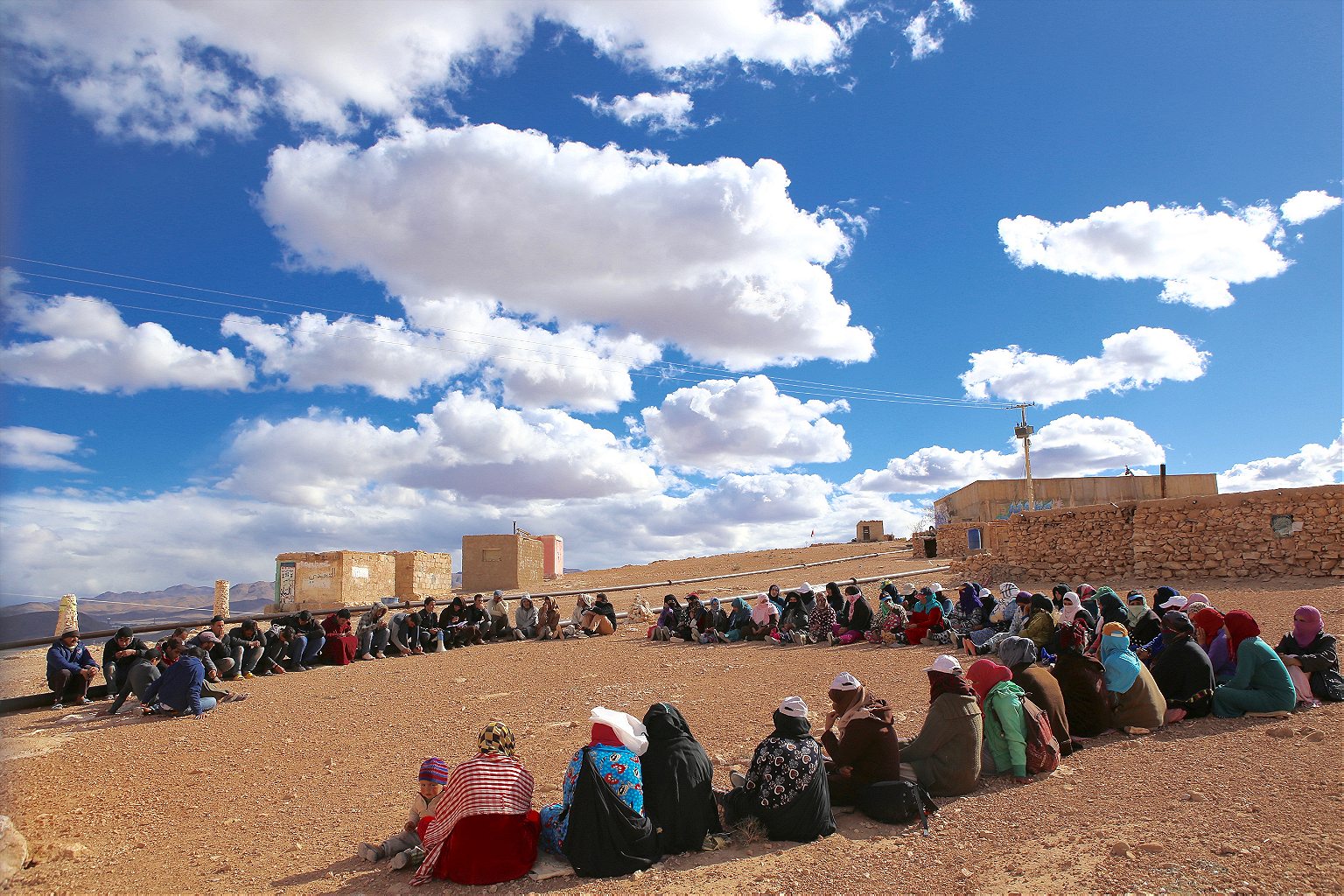
Jiang: Is that why you chose to make it a collaborative film?
Bouhmouch: In general, I believe that communities should decide for themselves and determine what happens to them. It’s quite easy in this context to have a collective form of filmmaking where the community itself is the producer and has a say in the film, creatively speaking. But whether that’s the only reason I made it, I would say no. I would love to replicate this exact form of participatory or “agrawist” filmmaking anywhere where it’s possible, because I think it’s a principle that applies to any field, not just cinema. I think that if we had a society where engineers got together and worked directly with communities that participate in deciding how, for example, a bridge was to be built, we would actually have a better world.
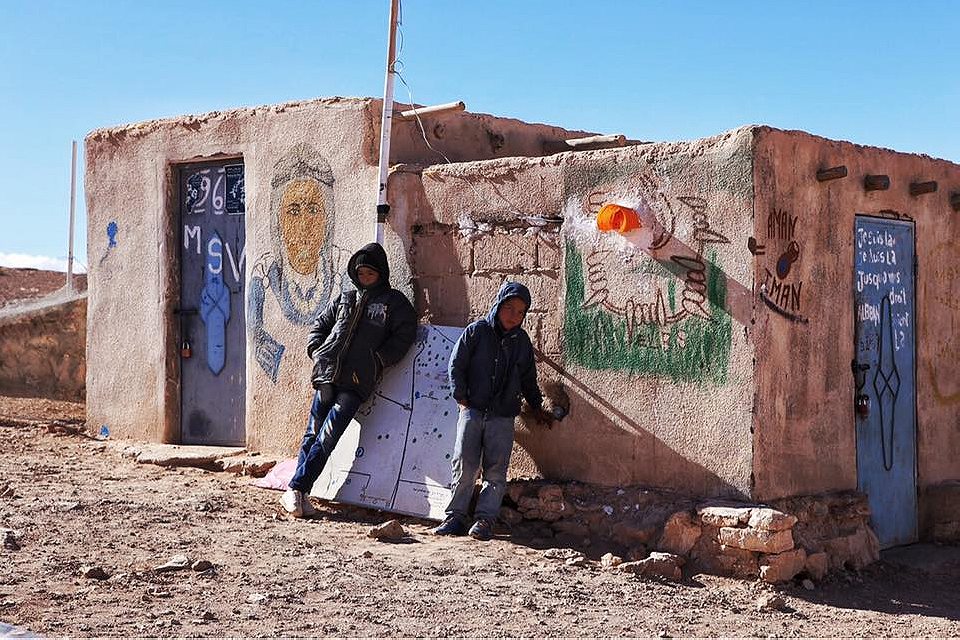
Jiang: What were some of the challenges you faced while filming?
Bouhmouch: The lack of resources was a big one. We had to make do with the most basic equipment. The state’s presence was constraining [in the village]. You can film quite easily in the protest camp because it’s practically uncontrolled by the state and it’s a sort of liberated zone. The police don’t actually go up to the protest camp, so there I could take my time. But in the village, that’s something else, because you have the presence of the state spies, the muqaddimiya, and the threat of the gendarmes (police).
This other constraint—for me it’s not a bad constraint. It’s actually a very positive constraint. When you have so many people making decisions—because we worked through consensus—everybody has to be in agreement about what decision we make. This process can take a long time. But the ideas that emerged turned out to be more fruitful than the ideas that would come from a single person making a decision.
Jiang: Did you have any instances where the government actively affected filming?
Bouhmouch: Yes. The muqaddim reacts quite quickly to our presence in the village. This basically just means that we have to plan better to avoid him. The muqaddim doesn’t have the right to arrest us, but if the muqaddim spots us, he could call the gendarmes who have the power to stop us and confiscate our equipment. Knowing that there are gendarmes 15 minutes away from the village where we’re shooting, we avoid as much as we can him spotting us. If he does spot us, we know we have 15 minutes to hide in a house somewhere, which isn’t very difficult to do when the entire community is supporting the movement and the movement is producing the film.
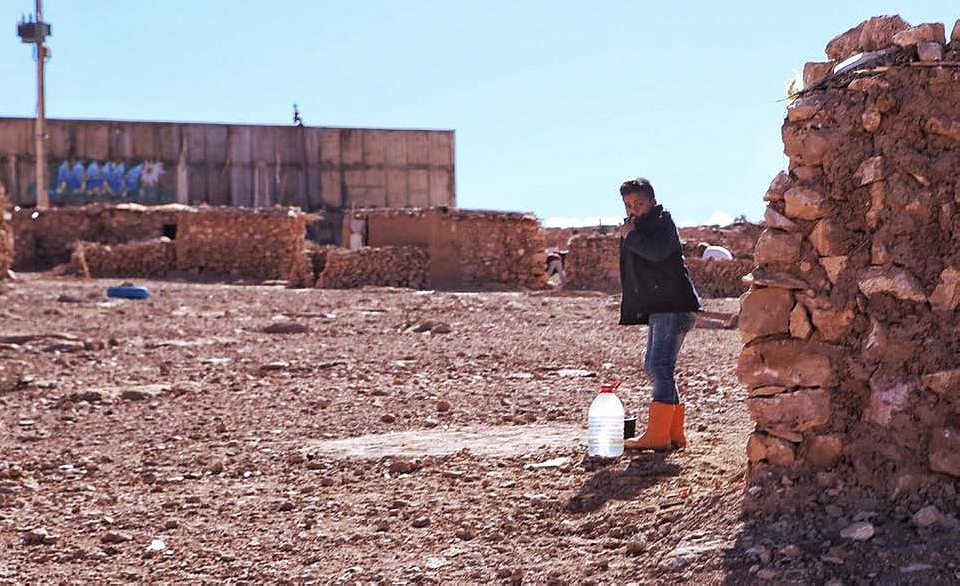
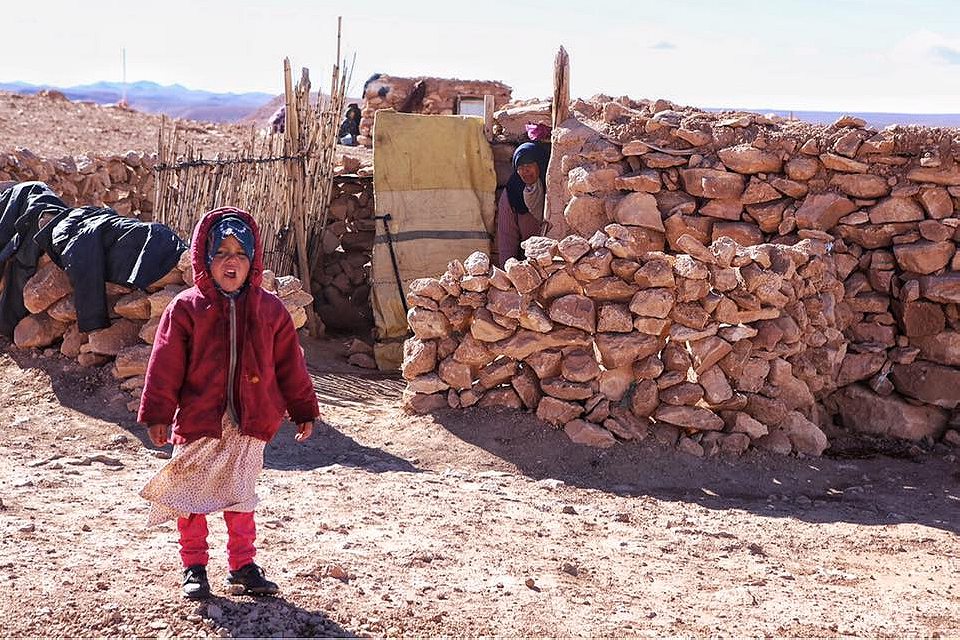
Jiang: Have you screened the film already?
Bouhmouch: Yeah, we screened it there. We had the world premiere in the protest camp.
Jiang: How did people react to it?
Bouhmouch: It was very positive. But it wasn’t just the community that was there. There were also other people from the southeast. There was a student solidarity caravan that came from Errachidia, from Ouarzazate, from Marrakech, from the towns like Tinghir that are close to Imider.
Jiang: How do you expect the government to react to your film?
Bouhmouch: You never know with the makhzen (the Moroccan state apparatus). The makhzen is quite fickle. It just depends on what is in its best interest. If it’s in its best interest to directly attack you, then it will. If it is in its best interest to attack you indirectly, that’s what it will do. And if it’s in its best interest to stay away and let you die out on your own, then that’s what it will do.
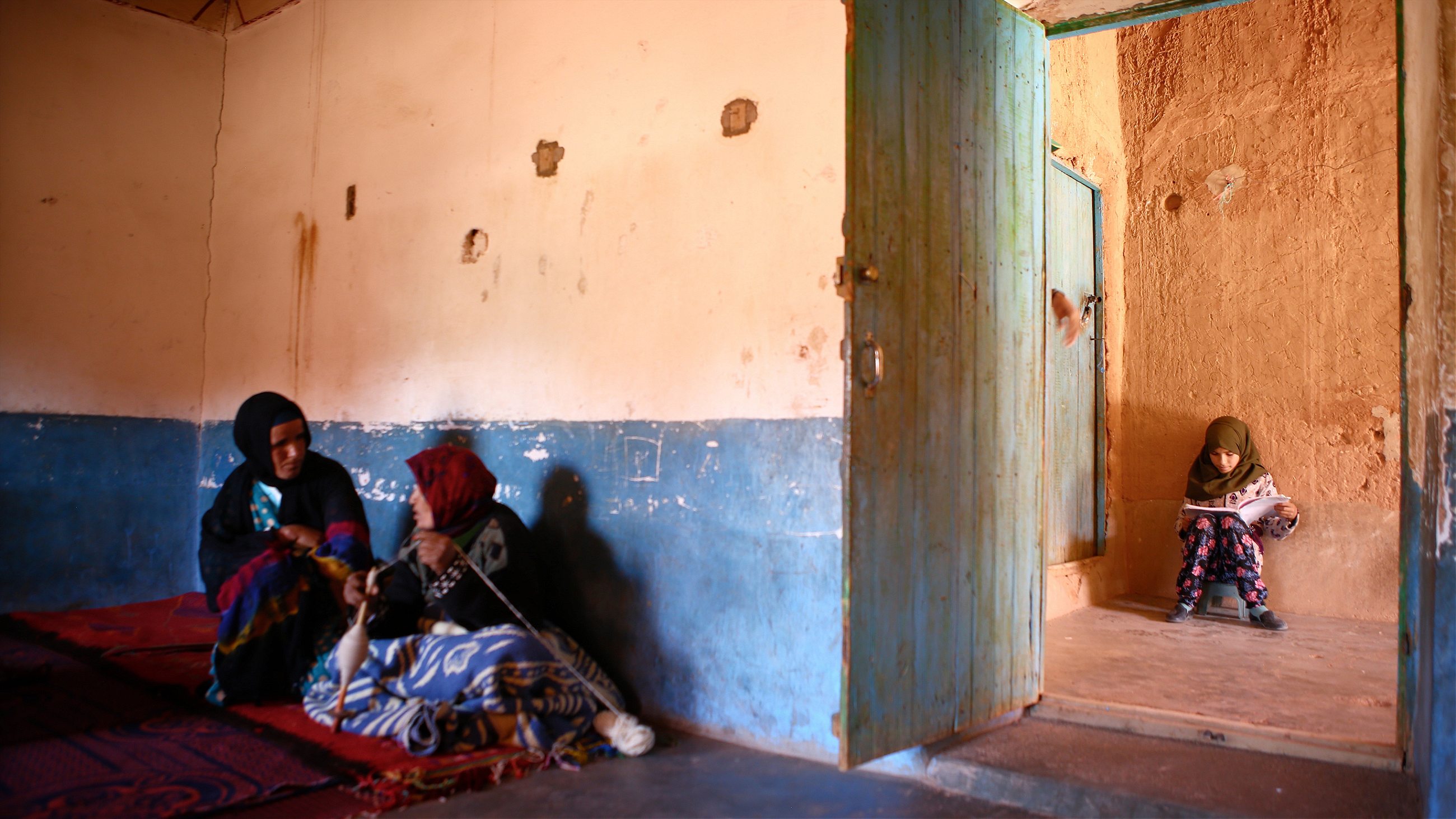
Jiang: What is the impact you hope to have with this film?
Bouhmouch: I hope it has enough impact for [the government] to actually want to block [the film] actively.
Jiang: What do you think will happen next with the protest movements that have been happening in Morocco in the past couple of years, such as Hirak, the ongoing protest movement in the Rif region?
Bouhmouch: I think the social and economic pressure is rising in general because of the neoliberal politics that the makhzen has been undertaking since the 1980s. And I think that these pressures are only continuing to rise. Morocco just took out another loan from the World Bank. Every time we take a loan from the World Bank, the budget for the armed forces and the police forces increases. The makhzen knows that what it’s doing is increasing pressure on the population, on their pockets, on their stomachs. Instead of investing in keeping prices accessible, they invest more in police that will stop or stifle protest. That’s why we have all these protests emerging here and there and there. But I think at one point it will crack and it will become a more generalized protest movement. It can’t go on much longer like this.
Jiang: What’s next for you?
Bouhmouch: I don’t know, but I think I will be writing a lot about this experience because I think it’s worth sharing with others. But besides that, I really don’t know. I would certainly stay on the question of land rights, environmental rights, indigenous rights. These are questions that I think are very relevant today for Morocco and North Africa in general.
This conversation has been edited and condensed.






